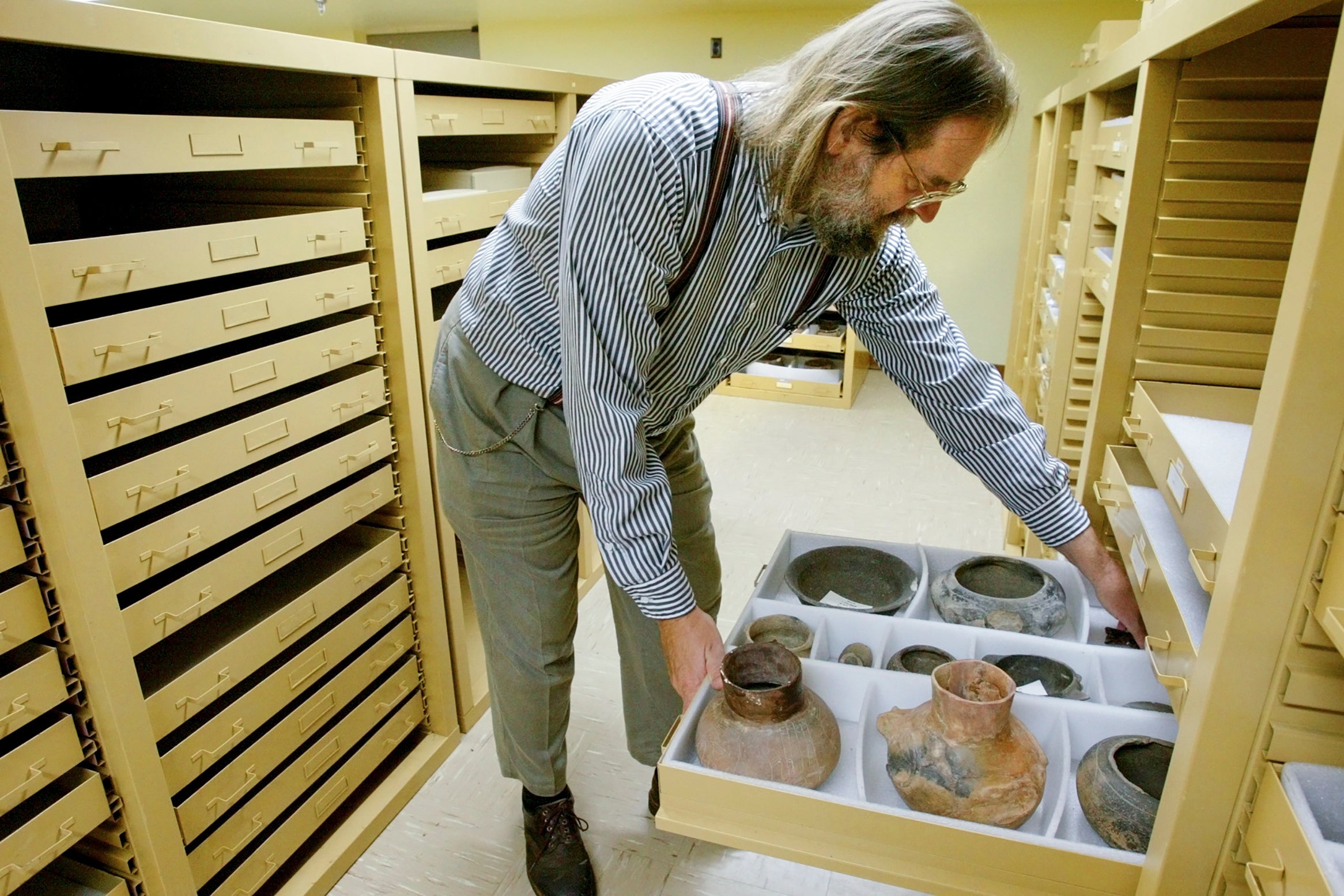Indian tribes seek return of remains, artifacts from Alabama
Leaders of several American Indian tribes are asking the University of Alabama to return nearly 6,000 human remains and artifacts from the school's archaeological park and museum

Your support helps us to tell the story
From reproductive rights to climate change to Big Tech, The Independent is on the ground when the story is developing. Whether it's investigating the financials of Elon Musk's pro-Trump PAC or producing our latest documentary, 'The A Word', which shines a light on the American women fighting for reproductive rights, we know how important it is to parse out the facts from the messaging.
At such a critical moment in US history, we need reporters on the ground. Your donation allows us to keep sending journalists to speak to both sides of the story.
The Independent is trusted by Americans across the entire political spectrum. And unlike many other quality news outlets, we choose not to lock Americans out of our reporting and analysis with paywalls. We believe quality journalism should be available to everyone, paid for by those who can afford it.
Your support makes all the difference.Leaders of several American Indian tribes are asking the University of Alabama to return nearly 6,000 human remains and artifacts from the school’s archaeological park and museum.
The Oklahoma-based Muscogee Nation has tried for six years to get the remains back, but bureaucratic red tape has slowed the effort, said RaeLynn Butler, the Muscogee Nation’s historic and cultural preservation manager.
The situation is no different than if someone dug up a family graveyard and took the remains for study, said Del Beaver, second chief of the Muscogee Nation.
“And then if somebody asked for their grandma back and we said ‘No, there’s too much red tape,’” Beaver told the news site Al.com. “Just give us our people back.”
Communications with the university slowed during the pandemic, frustrating tribal leaders who believe the remains and artifacts at the university’s Moundville Archaeological Park should be reburied, Butler said.
Next week, a federal review committee is scheduled to consider the evidence linking the seven tribes to Moundville and will rule on whether they can claim the remains as their own. However, the committee can’t force the university to turn over the remains and artifacts, Butler said.
“The University of Alabama is honored to serve as the steward of Moundville Archaeological Park, one of the nation’s premier and best-preserved cultural heritage sites,” according to a statement provided by university spokeswoman Diedre Stalnaker.
University officials this week made leaders of the Muscogee Nation aware of the school's “desire to further collaborate on their most recent joint request related to Moundville,” the statement said.
The Muscogee Nation and a half-dozen other tribes sent a joint claim to the university under the federal Native American Graves Protection and Repatriation Act. The 1990 law requires institutions that receive federal funding to return remains and the artifacts buried with them to the tribes where they belong.
The Muscogee Nation was forced out of Alabama in the 1830s during the Trail of Tears. The loss of the remains at Moundville compounds the tragedy, Muscogee Nation Principal Chief David Hill said.
“We didn’t even get to do proper burials for those lost in the Trail of Tears,” Hill said.
“Why do they need all these items in the museum?” Hill added. “It’s never too late to do the right thing. That’s all we want. Just return them back.”
Other tribes involved in effort include the Choctaw Nation of Oklahoma the Chickasaw Nation, the Coushatta Tribe of Louisiana, the Seminole Tribe of Florida, the Seminole Nation of Oklahoma and Alabama-Quassarte Tribal Town.